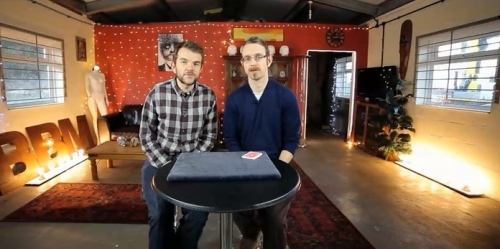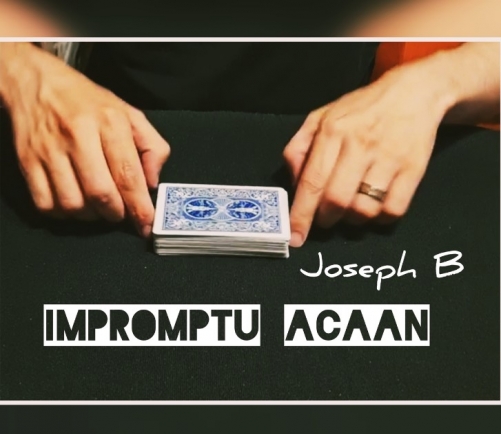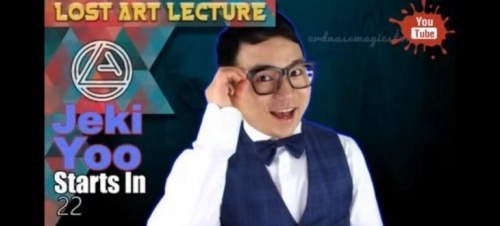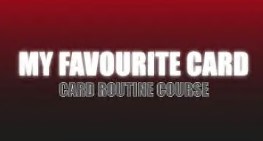CRYSTAL CLEAR TRANSPO: The classic transposition between two cards placed on the top and bottom of a glass. No duplicate cards are used.
A ROYAL ENIGMA: Based on “The Vernon Card Puzzle” in Early Vernon (1962). It was inspired by Peter Kane’s “Royal Families” in A Further Card Session (1975) and by Roy Walton’s “Split Up” in The Complete Walton Vol. 2 (1986).
MORE ROYAL ENIGMATICS: Can be used as a Follow-up routine to the previous effect, or a stand-alone trick. Based on Roy’s “Happy Families” in Some Late Extra Card Tricks (1975), also in The Complete Walton Vol.1 (1981).
MEXICAN EXPANSION: You lay three cards in a face down row on the table. These are a prediction. A card is now freely chosen from the deck – no force. The three cards are now turned over: the first card is a SPOT card – the second card is a Diamond – the third card is a Nine. Therefore, you say, the card chosen must be the Nine of Diamonds? It is.
LEAD-IN: ‘The Spectator Cuts The Aces’ has always been a favourite of mine. This version is designed as a lead-in for any four Ace trick that requires the usual 12 cards, and there must be hundreds that fall into that category This particular version is based on a Marlo method which used the lap. No lapping here!
ON A ROLL: After selecting a card, a spectator cuts the deck into three piles. The top cards of these piles are shown to be three Jacks! Where is the missing Jack…it’s his selection, of course.
A GREAT DEAL OF THOUGHT: Two selections = one discovery and one surprise.
A SHADE INEXPLICABLE: You lay out 8 business cards numbered 1 through 8 on the table. A spectator slides out any five cards – no force. You have predicted the outcome!
MUCKY HANDS: A pseudo-explanation of hand mucking in which 4 completely blank cards transpose with 4 Kings that are in your wallet.
AS EASY AS A,B,C: A spectator shuffles the deck and cuts it into three piles, then he shuffles each pile. He now picks up one of the piles and holds it in his hands. You and another spectator each take one of the remaining piles. You both input data, and that is, the complete alphabet, A to Z! Both piles now reveal the number of red and black cards that are in the original spectator’s pile.
SHORT SHARP SHOCK SHARPENED: This short, simple but effective colour changing pack is an improved handling of that which I published in Contemporary Card Magic (Martin Breese, 1984). The original version had an awkward discrepancy where the last card dealt during the 1st selection process immediately appeared as the face card of the deck for the 2nd selection process. It has only taken me 21 years to eliminate this problem! Sometimes the simplest solutions are the hardest to find.
A ‘LESSEN’ IN DISHONESTY: A spectator takes a portion of the deck, cuts it and places a card, unseen, into his pocket. He now eliminates all but two cards. The remaining two cards are used to designate a SUIT and VALUE. These two components accurately reveal the card in the spectator’s pocket.
U. D. ASSOCIATES: A spectator finds two matching mates without knowing how.
ONLY A GAME: Tricks with the Down Under deal are generally considered boring by the magical populous. I cannot disagree with this where a large number of cards are involved, or the performer repeats the procedure four times to arrive at the four aces. Let’s face it, the Down Under has to be the least interesting thing imaginable for any audience to sit and watch. However if the number of cards is few, and two spectators are asked to partake in a little game of chance, with the performer simply standing by we may have a trick with audience interest.
 USD
USD



